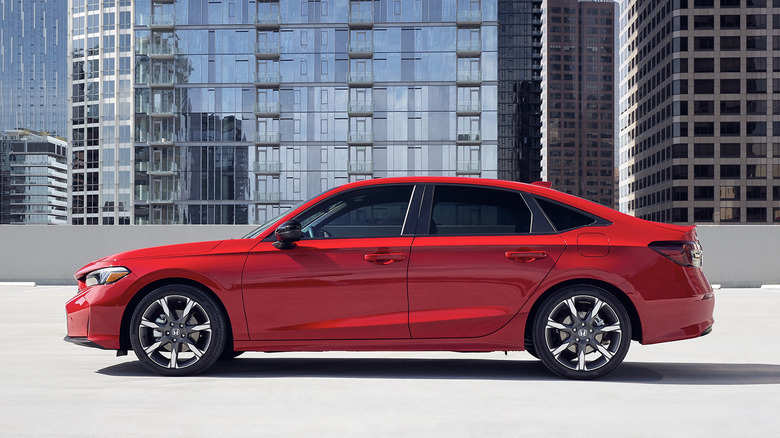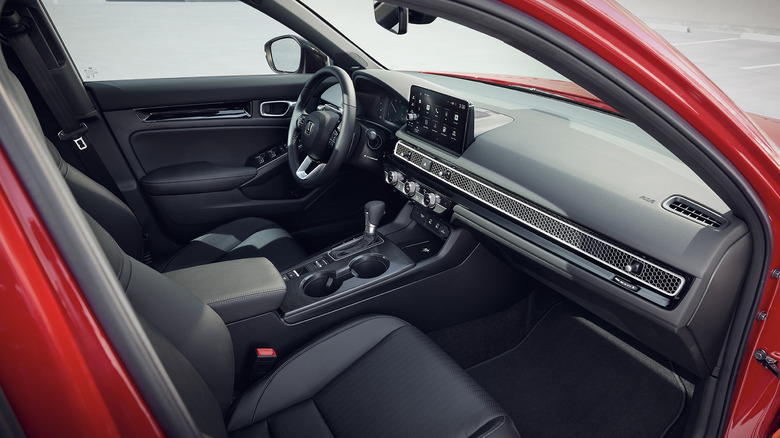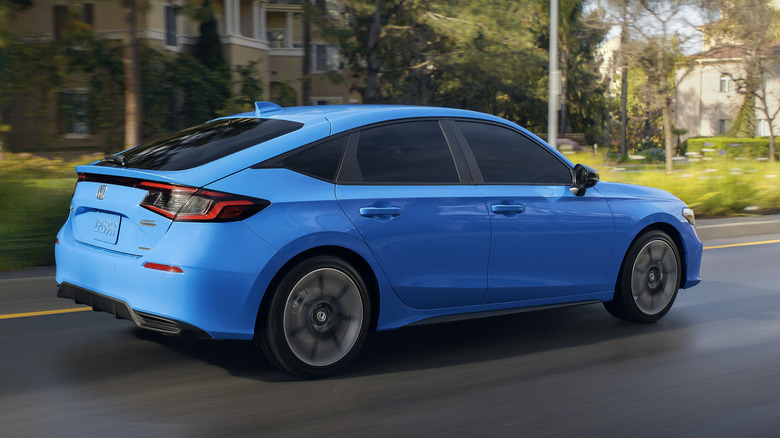How Much Does A Honda Civic Depreciate In One Year?
For decades, the Honda Civic has been considered one of the best small cars on the market. That trend has continued with the latest 11th-generation Civic, which added a new hybrid model for the 2025 model year. In our testing, we found that the new Civic Hybrid delivers an incredible combination of power and fuel efficiency, which comes on top of all the good things we already liked about the current Civic.
But beyond being a car that's reasonably priced, good on gas, and genuinely fun to drive, resale value is another big reason that the Civic has earned such a good reputation. Generally speaking, one has always been able to buy a new Honda Civic without worrying about its value plummeting as soon as it drives off the lot. With that in mind, how much can you expect a brand-new Civic to depreciate after one year of ownership?
Exact depreciation will vary based on the specifics of the car, your region, and the state of the market, but according to Car Edge, a 2025 Honda Civic is expected to depreciate around 16% in its first year of ownership. An iSeeCars study shows that the five-year depreciation average is 28%, ranking fifth out of all vehicle models.
Why the Civic makes sense
Unless you happen to be buying some sort of ultra-limited collector car, depreciation is simply a fact of life when buying a new vehicle. And typically, that depreciation curve is at its steepest in the first year or two after purchase. From that perspective, the Civic's 16% one-year depreciation figure is reasonable to say the least. Especially when you consider that the car already has a relatively low purchase price to start.
At the moment, the least expensive new Civic you can buy, the LX sedan, comes in with an MSRP of $24,595 (plus $1,195 destination fee), easily putting it among the cheaper new car offerings on the market today. For budget-conscious buyers, there are some less even expensive options than the Civic out there, including a handful of models that still come in under $25,000. But when you factor in the Civic's superb resale value, it can make absorbing that extra up-front cost a smarter choice in the end. Likewise, if you can afford the extra cost of jumping up to the Civic Hybrid over the base model Civic, general trends suggest that you won't just be benefiting from greatly improved performance and fuel economy. You will also benefit from long and short-term resale value over the non-hybrid models.
A smart buy any way you slice it
While resale value has always been a big factor in car buying, it's even more important right now. In today's auto market, where prices are climbing ever higher, loan terms are longer, and affordability continues to be a major issue. The idea of a new vehicle that doesn't tank in value the moment you buy it is more desirable to buyers than ever. The only thing worse than having an expensive new car you can no longer afford, is having an unaffordable new car that's worth way less than you owe on it.
There are lots of factors to consider before purchasing a new or used Honda Civic, but you can have peace of mind knowing that depreciation (or lack thereof) continues to be one of the Civic's strong suits. The Honda Civic has evolved a lot since it first took America's compact car market by storm, growing larger, more powerful, and more tech-laden over the years, but its long-running reputation for delivering excellent value shows no signs of stopping.


